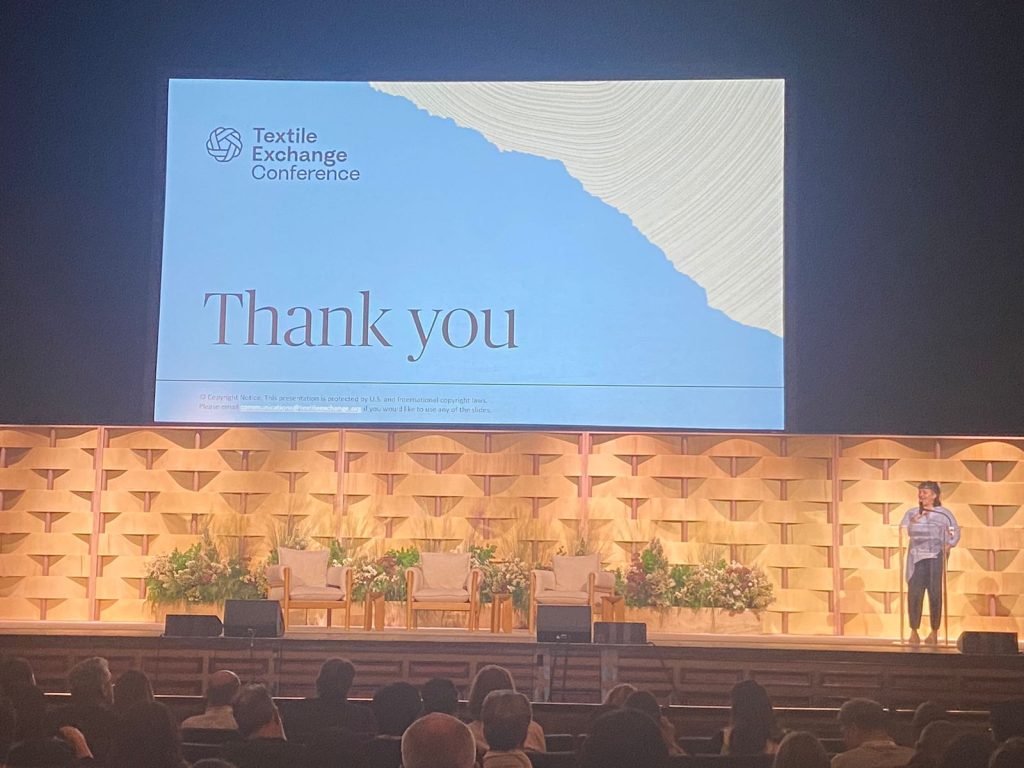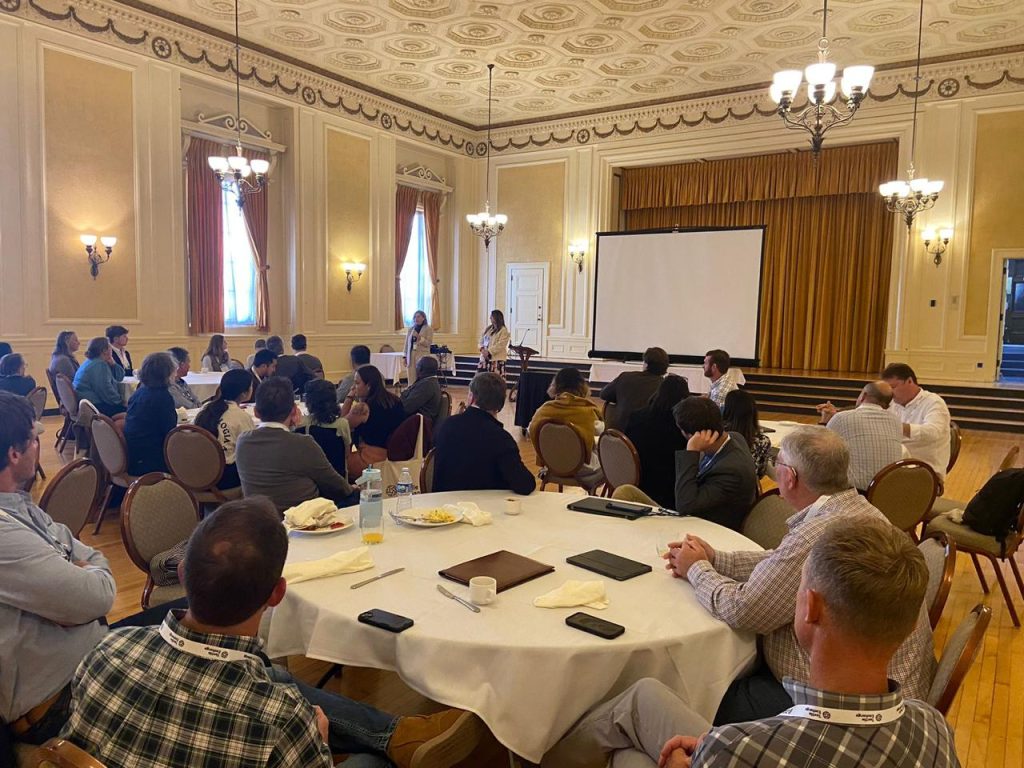Brazil participates in the Textile Exchange Conference in the USA
Calendar and Events |
Cotton, as a natural, recyclable, and biodegradable fibre, should be given greater preference to further contribute to the increasingly responsible future of the textile and fashion industry. This was the message put forward by Brazil during the Textile Exchange Conference, which took place this week in Pasadena (California).
The Brazilian delegation at the event consisted of representatives from the Brazilian Cotton Growers Association (Abrapa), through Cotton Brazil, and the Mato Grosso Cotton Growers Association (Ampa). The Textile Exchange is a global non-profit organization that promotes good practices to reduce impacts on climate and nature.
One of the highlights of the event was the global cotton round table, which took place on Monday (28th) and was attended by the Brazilian delegation. Among the topics were the most recent initiatives taken by the Textile Exchange, the International Cotton Advisory Committee (ICAC) and other global organizations that promote the use of preferred fibres.
The term, “preferred cotton”, created by the Textile Exchange, identifies cotton that is produced in a more ecologically and/or socially responsible way compared with conventional cotton. There are currently 18 global programs for growing preferred fibres identified by the organization – including wool and other products.

The Responsible Brazilian Cotton (ABR) program, a national standard for socio-environmental certification of cotton, is on the Textile Exchange pCotton list.
“Our aim is to stimulate the production of more preferred fibres around the world, as is the case with ABR. Our presence at events like this allows us to participate more actively in global discussions on this topic,” said Alexandre Schenkel, president of Abrapa.
Claire Bergkamp, CEO of Textile Exchange agrees. “We do not work exclusively with organic fibres, but rather with the goal of encouraging the use of preferred fibres, regardless of the production method,” she explained.
Private financing for sustainable cotton production was also on the agenda. “The adoption of a more responsible production system does not occur from one harvest to the next, but in the medium to long term, three to five years. Some brands have invested in this, and this movement needs to expand,” said Abrapa’s Sustainability manager, Fabio Carneiro.

Another prominent topic was the concern about the extensive production of clothing made from synthetic fibres. The amount of waste and end destination of so-called “fast fashion” products are a concern for the sector. “The positive news is that cotton is a lower-impact alternative, which is completely biodegradable and more suitable for recycling,” said the president of Abrapa.
The environmental gains of regenerative agriculture were also addressed. This topic was the subject of a specific panel, which was attended by the director of Ampa, Guilherme Scheffer.
In addition to participating in the conference debates, Abrapa representatives held side meetings. One of these was with Cascale, formerly the Sustainable Apparel Coalition (SAC), an international network of around 300 clothing, footwear and textile brands focused on creating tools to assess and measure the environmental impacts of the industry.
Find out more. Abrapa’s presence at the Textile Exchange Conference is part of the activities organised by Cotton Brazil, a program to promote Brazilian cotton on a global scale developed by Abrapa. This enterprise is a joint action in partnership with the Brazilian Trade and Investment Promotion Agency (Apex Brasil) and is supported by the National Cotton Shippers Association (Anea).
